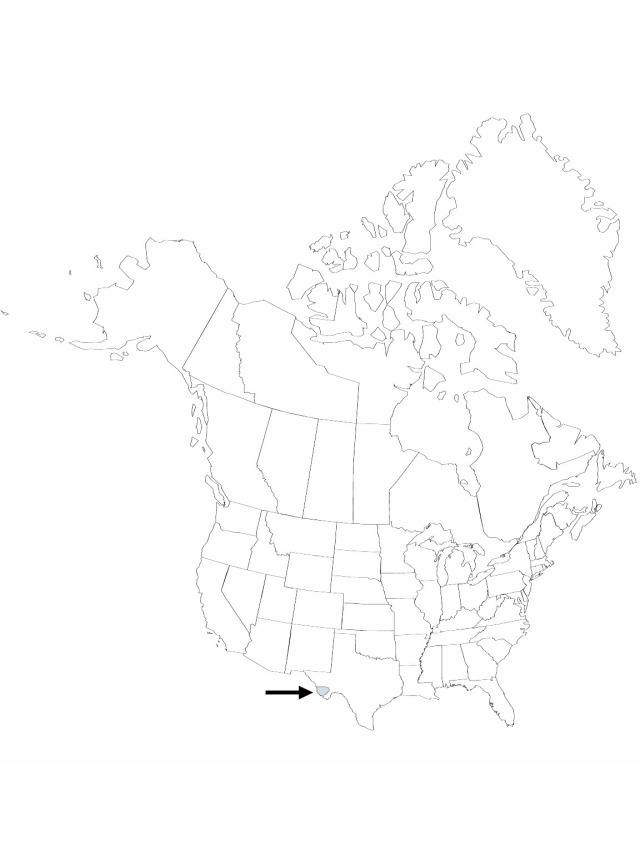Tradescantia leiandra
in W. H. Emory, Report on the United States and Mexican Boundary Survey, ... 2(1): 224. 1859.
Roots clustered, fibrous-thickened. Stems sparsely branched, 30–50 cm, tufted, glabrous. Leaves spirally arranged, distant; blade not variegated, narrowly lanceolate, 7.5–16 × 1–2.5 cm (distal leaf blades wider or narrower than sheaths when sheaths opened, flattened), base symmetric, rounded to broadly cuneate, margins smooth or ciliate-scabrous, apex acuminate, glabrous to sparsely pubescent. Inflorescences terminal; bracts very unlike proximal stem leaves, connate, ovate-lanceolate, 2.4–4.5 cm, base cordate, somewhat dilated. Flowers subsessile; pedicels densely covered with white, long, eglandular hairs or occasionally only with colorless, short, glandular hairs; sepals distinct, usually glandular-pubescent as well as villous; petals purplish red, clawed, claws connate basally forming tube; stamens epipetalous; filaments glabrous. Capsules 3.5 mm, glabrous. Seeds 1.5 mm.
Phenology: Flowering summer–fall (Jul–Oct).
Habitat: Moist, rocky places, on ledges, among shrubs and in canyons
Distribution

Tex., Mexico (Coahuila, Nuevo Leon).
Discussion
The plants from the Capote Falls region of Presidio County, Texas have pedicels with short, colorless, glandular hairs instead of long, white, eglandular hairs and were separated as Tradescantia leiandra var. glandulosa Correll (D. S. Correll 1968).
Selected References
None.